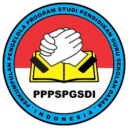KESULITAN BELAJAR MATEMATIK SISWA SEKOLAH DASAR PADA OPERASI HITUNG BILANGAN BULAT
DOI:
https://doi.org/10.35568/naturalistic.v4i1.633Keywords:
Mathematics learning difficulties; the operations of integersAbstract
One of the goals of teaching mathematics in elementary schools is students are able to understand mathematical concepts, explain the interrelationships of the concepts and apply algorithmic concepts in a flexible, accurate, efficient and precisely in solving their daily problems. The elementary schools nowadays show that there are still found many students who have difficulty in solving problems related to the subject matter, especially on arithmetic operations of integers. This research is a qualitative descriptive study. Students in first grade are given a worksheet to solve individually by writing out the work steps clearly. Six students were chosen as research subjects to be analyzed. The sixth research subject consists of 2 subjects who have high mathematical abilities, 2 medium, and 2 low mathematical abilities. The difficulty of the subject was observed by examining the worksheet's answer and giving clinical interviews related to the results of his work. Based on the results of data analysis, the difficulty of learning mathematics of elementary school students in integer operations is: 1) students have difficulty understanding the purpose of the question so that it incorrectly translated into mathematical sentences; 2) students have difficulty operating numbers that contain negative signs; 3) 95% of students have difficulty understanding the meaning of equal sign (=); 4) students have difficulty carrying out the division operations.
Downloads
Downloads
Published
Versions
- 2020-07-06 (2)
- 2019-10-31 (1)
How to Cite
Issue
Section
License
Copyright of Journal Naturalistic : Jurnal Kajian Penelitian Pendidikan dan Pembelajaran (e-ISSN:2548-8589, p-ISSN:2528-2921).
Open Access Policy
This journal provides immediate open access to its content on the principle that making research freely available to the public supports a greater global exchange of knowledge.
This journal is open access journal which means that all content is freely available without charge to users or / institution. Users are allowed to read, download, copy, distribute, print, search, or link to full text articles in this journal without asking prior permission from the publisher or author. This is in accordance with Budapest Open Access Initiative.





